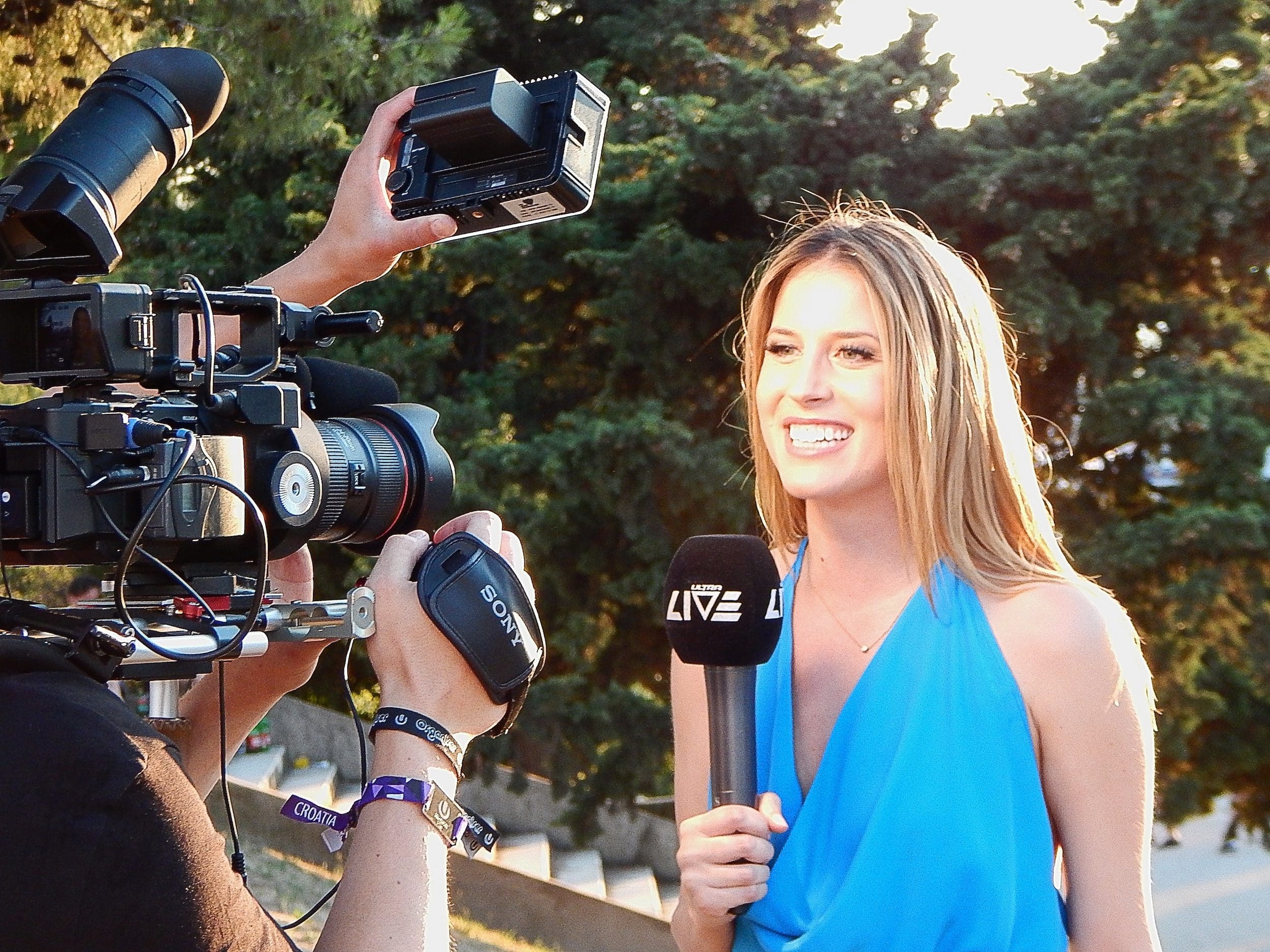Post photo: journalist | © Neven Divkovic on Pixabay
There have always been bad and good journalists. I had my first experience with journalists while reading the Heilbronner Voice. I got to know quality journalism because a friend's father had subscribed to Der Spiegel and I was able to read it regularly. Until well into the 1990s, Der Spiegel was part of my regular reading.
Later, when I became politically involved in a youth organization, I got to know other local newspapers and had to accept the fact that our local newspapers were all less interested in political content than in the many riverboat parties and other political festivals of the competition at the time. And even today, decades later, I get those articles printed there that focus on eating and drinking — political content is still only of interest if it can be reconciled with the perceived local consensus.
At the beginning of my professional life we were given the choice of subscribing to the Frankfurter Allgemeine Zeitung, the Süddeutsche Zeitung and, probably more for the Northern Lights, the Welt. At that time I decided on the FAZ and remained loyal to this newspaper almost until I retired, even though I became more and more friendly with the Süddeutsche Zeitung; and if they hadn't constantly threatened their regional section, maybe even thought about a change.
Because of my job, I then learned also newspapers from other countries know and appreciate, so I've always subscribed to a few of them and I'm happy that they help me to think outside the box.
I still appreciate well-researched newspaper articles and believe that newspapers grow and thrive on their own competition, but without competition they just vegetate and mutate into mere decals of themselves and their former glory.
Again, for professional reasons, I was confronted with the fact that you can be in the interests of journalists and don't just have to constantly ask them to report on your own voluntary activities. But I quickly realized that it's not necessarily an advantage if you get the interest of journalists. And so it became "necessary for survival" that I dealt more with journalists than I usually would have liked and also had to complete appropriate courses and training.
I had my first corresponding experience as a platoon commander, namely when I was ordered to entertain a journalist with a camera team all day long with the infantry platoon I was leading. Since it was just another day of fighting in the forest and the soldiers had meanwhile mastered their tasks in their sleep, it was actually a sure-fire success — not only my superiors thought that, but I did too. But just to be on the safe side, I informed my comrades in advance of the importance of this visit and promised them a few cases of beer.
And so this journalist accompanied us for almost the entire day, conducted discussions and had certain exercises repeated for the camera. Her face got longer and longer, which I attributed to the fresh air, the cold that was slowly creeping in and the lack of special catering for our press companions.
But then something happened, which shouldn't have happened, a soldier, not exactly the most brilliant under the sun, got bogged down in the interview and the result was a half-sentence that could have been misunderstood without context. And with that, the press visit was suddenly over and the journalist left us with her entourage.
A few days later I was barbed by my superiors and the press release was shown to me. This consisted only of an opinion of the journalist in question, which was then substantiated at the end with precisely this half-sentence - with that I had made my first acquaintance with felt journalism. And if you have already done something in the Bundeswehr, you can always do it again.
And so one day I was delighted when I was allowed to look after two Spiegel journalists who had come to us especially to hear my superiors quote. Very affable gentlemen who surprisingly knew a lot, more than they later wrote in their article, which was also very fair — a highlight of professional journalism. I was less pleased about the simultaneous visit of a journalist who was supposed to be researching the same topic, because at the time and the The subject at all was, but as soon as I arrived I pounced on my only female soldier, a very attractive French woman, who, however, had earned the respect of all her comrades through good staff work and impressive robustness, and asked her frankly what she thought about the sexual harassment in the army? She only replied: "Why, did one of my comrades complain about me?" and left the journalist standing. Since I already knew that I didn't stand a chance against perceived journalism, I also ignored this lady and was completely sure that she would write past her topic. In any case, none of my superiors later rubbed their article in my face.
I was able to get to know the low point of journalistic work a little later in a well-known hotel on Sniper Alley, where politics, the press, aid organizations and organized crime had come together, obviously because it was the only place worth living in the near or far vicinity. I was there because information was traded there like in a bazaar and good information is not only important for journalists. In any case, I was able to experience the last dinosaurs of journalism there, who were swarmed by younger journalists like pop stars and who, pregnant with whiskey and in the smoke of cigars or cigarettes, happily shared their wisdom with women. At that time, careers were quite obviously started, whereby the felt journalism was probably also suitable for the masses.
I had processed these experiences years ago in two or three blog posts, but later deleted them again - probably due to old age. Experiences that I had during one of my last assignments also helped, where I was able to get to know freelance journalists for the first time who wrote technically sound and well-researched articles that they later had to sell to a wide variety of media. These journalists lived their profession and probably mostly on the border to the precariat — they would certainly have gotten much further with emotional journalism.
But then I was reconciled with journalism again by a now somewhat graying and well-known journalist, to whom I gave a television interview while high on malaria drugs, and he also caught me completely on the wrong foot. As far as I know, this interview was never broadcast, but he later happily aired it to the amusement of my co-workers — a testament to the fact that a good dose of humor is part and parcel of good journalism.
And where are we today? They certainly still exist, the good journalists who continue to collect information through hard work and technically adept and prepare it for their readers. And later, when they have formed their own picture through experience and knowledge, they can enrapture their readers or listeners with opinion pieces, even better, they can support their opinions with appropriate and well-founded arguments.
But unfortunately, and this was the reason why I canceled my FAZ subscription, among other things, good journalists are less and less able to have their say. And if the spelling mistakes also increase and the knowledge of basic arithmetic operations decrease accordingly, then it really is hardly worth reading a national newspaper. "One reads the local daily newspaper because of the obituaries," at least that's what my grandmother, who died far too early, said.
Especially not when the much praised opinion makers always proclaim a firm opinion, but very often have neither the necessary knowledge nor the experience and sometimes not even enough brains to be able to have a well-founded opinion at all.
It starts when I read opinions about volunteering from journalists who have never done enough volunteer work themselves, and for me the whole thing is crowned by glosses about things I know that the journalist in question is neither can have the necessary knowledge nor the necessary experience.
One may well have an opinion, but it should be based on fundamentals, and the more solid these fundamentals are, the more valuable the opinion represented is likely to be - whether this opinion is good or bad is still up to the reader's consideration. It also depends on the reader whether he shares it or not.
And so I am convinced that good journalism consists of gathering information and presenting it in a way that is understandable for the reader or listener. This also includes checking the truthfulness of the information received in advance and covering the entire spectrum, especially in the case of controversial topics.
If all this is too tedious for journalists and if you think you have to make the world happy with your own opinion alone, you should refrain from journalism and rather write a weblog.




